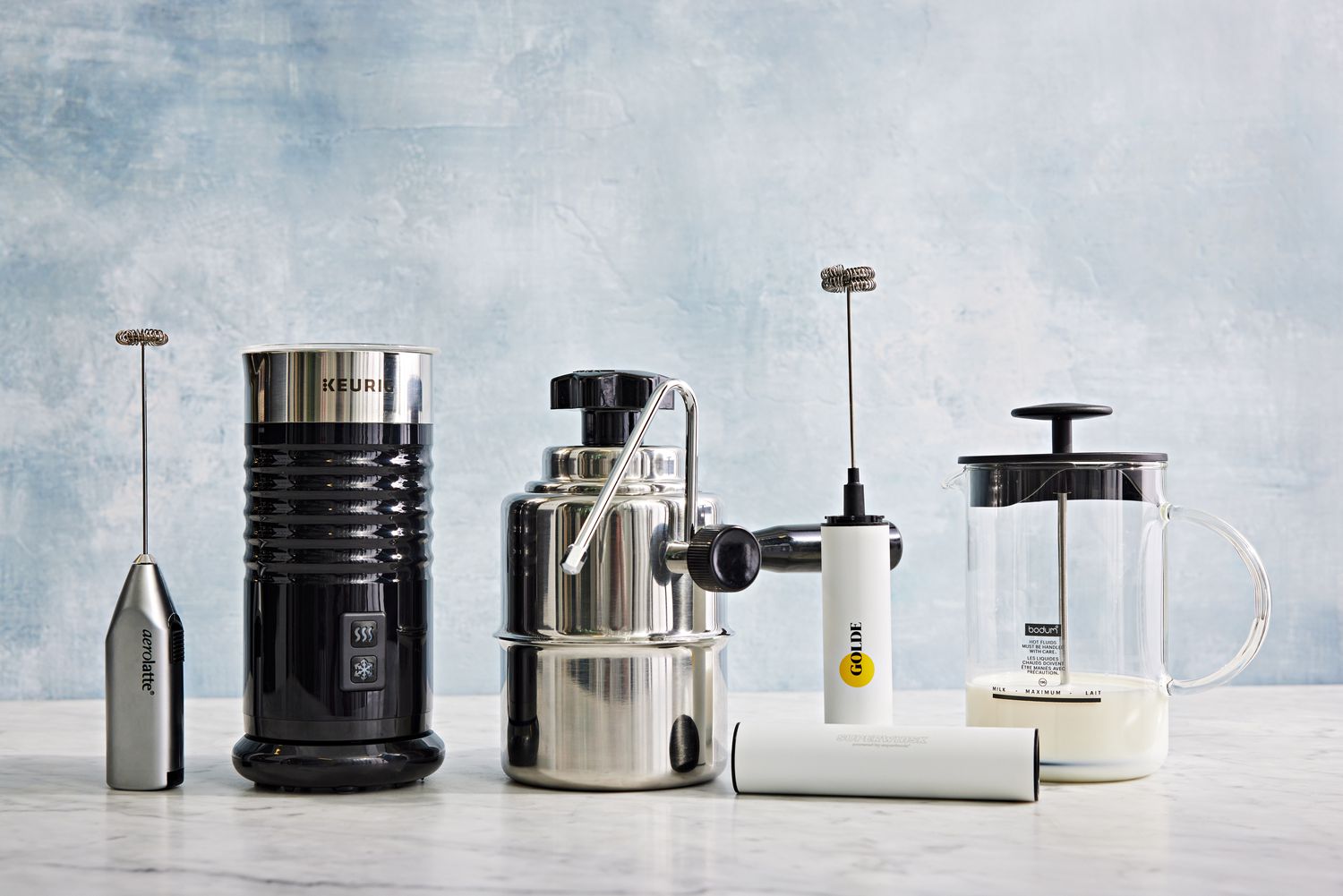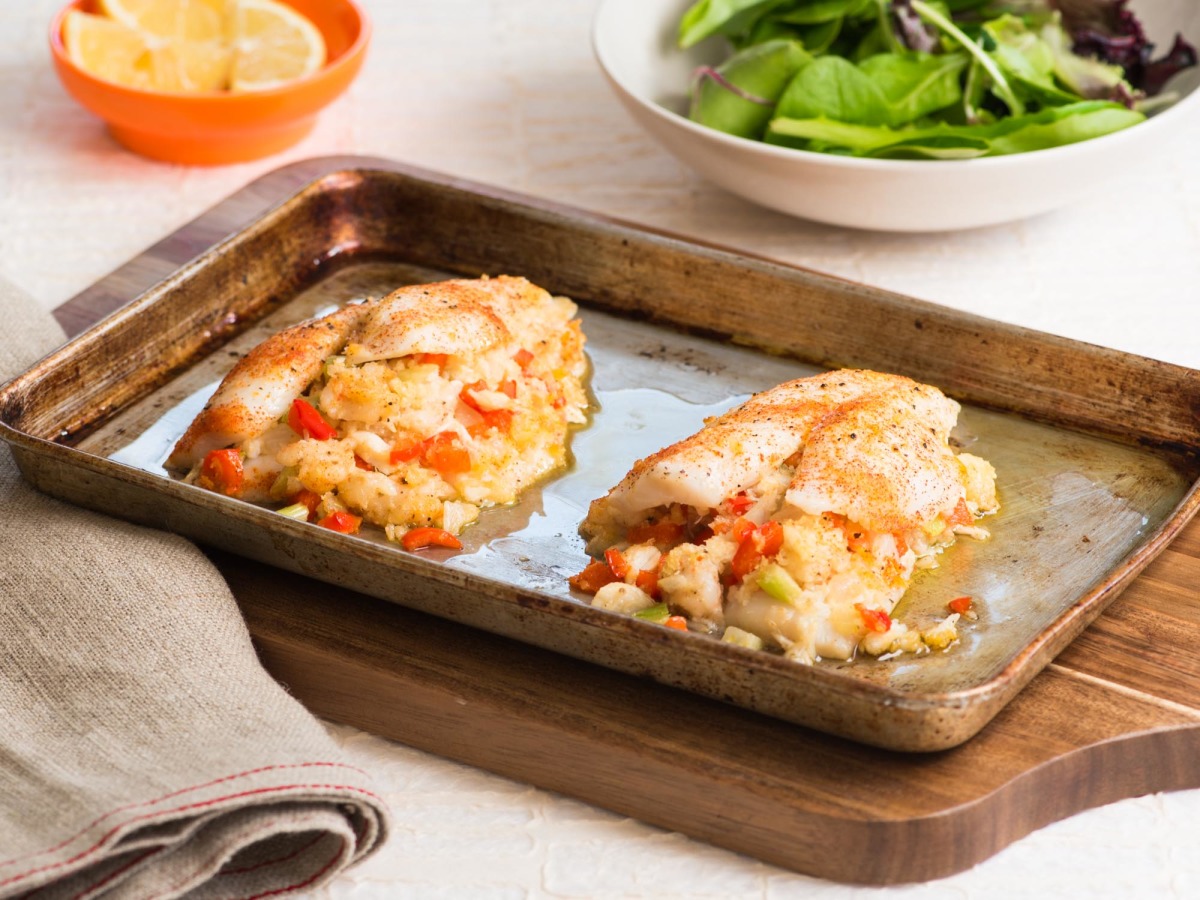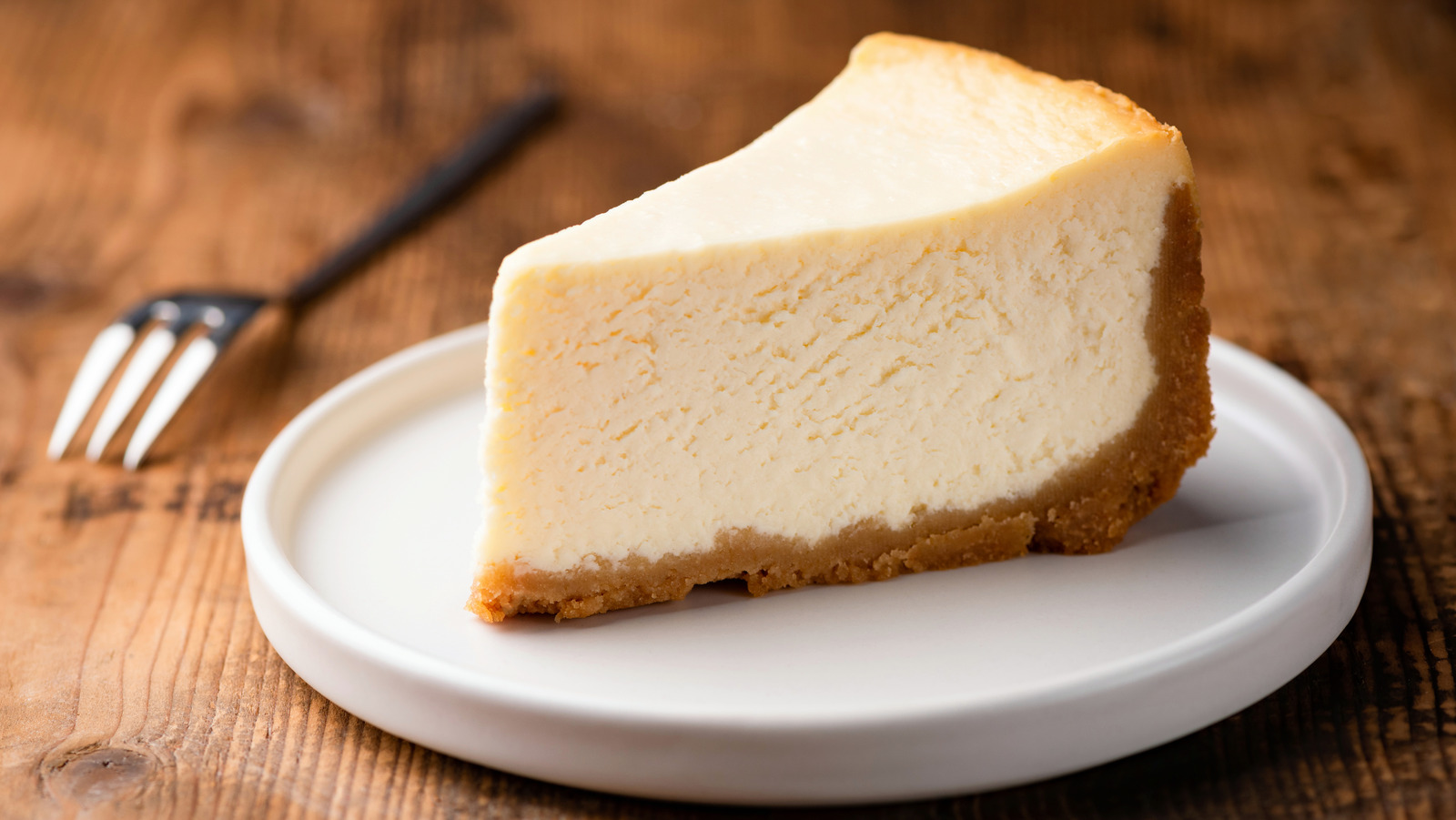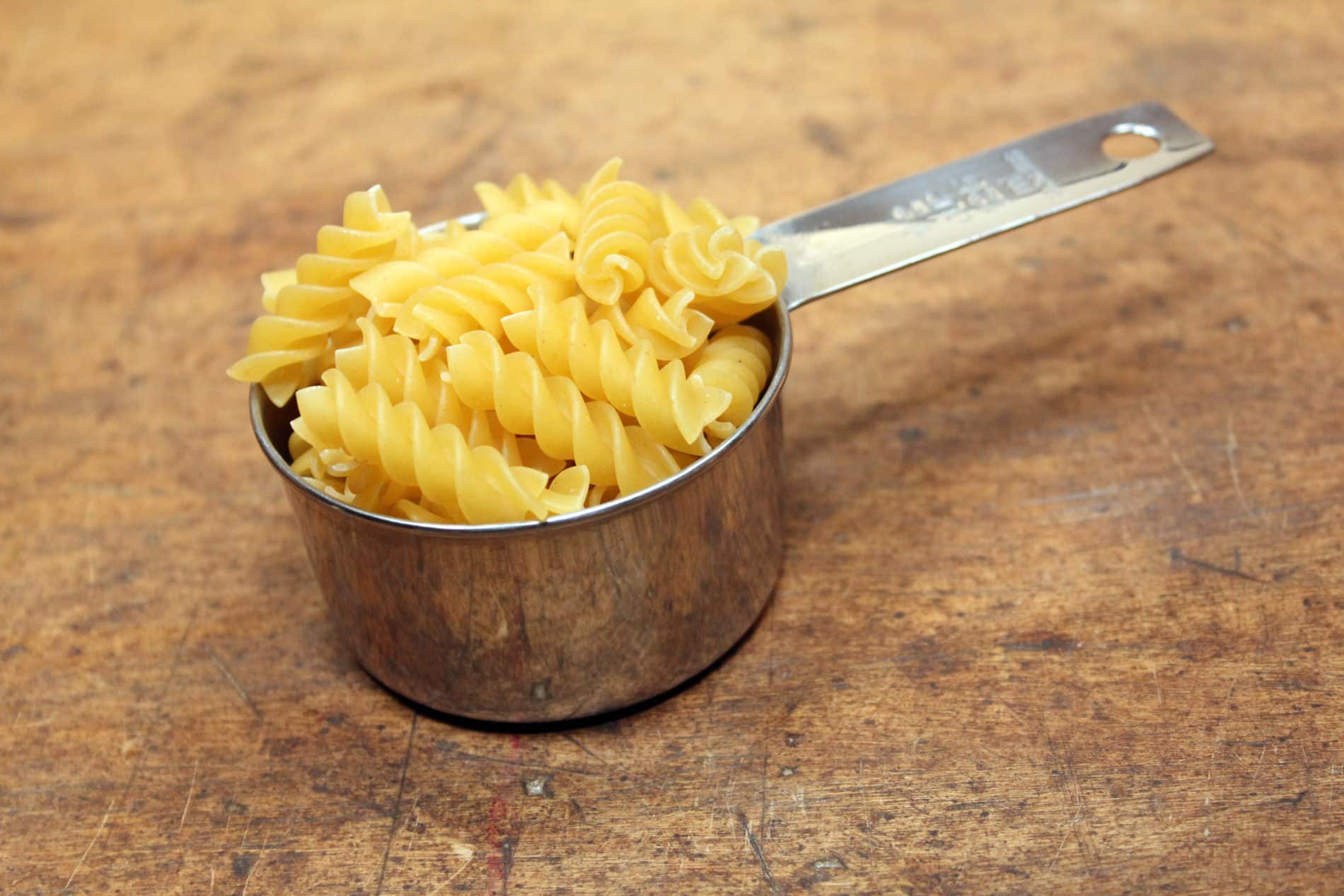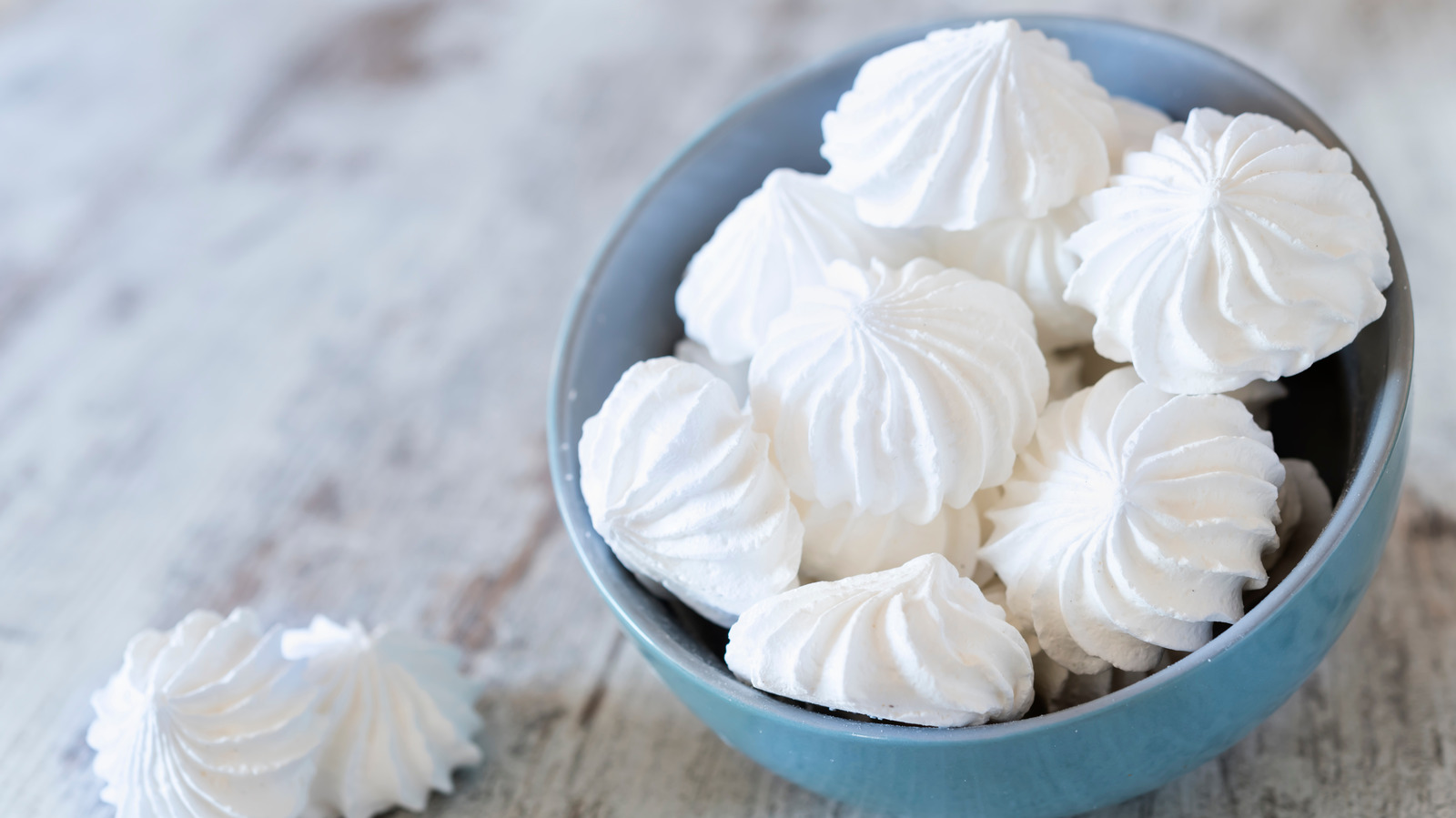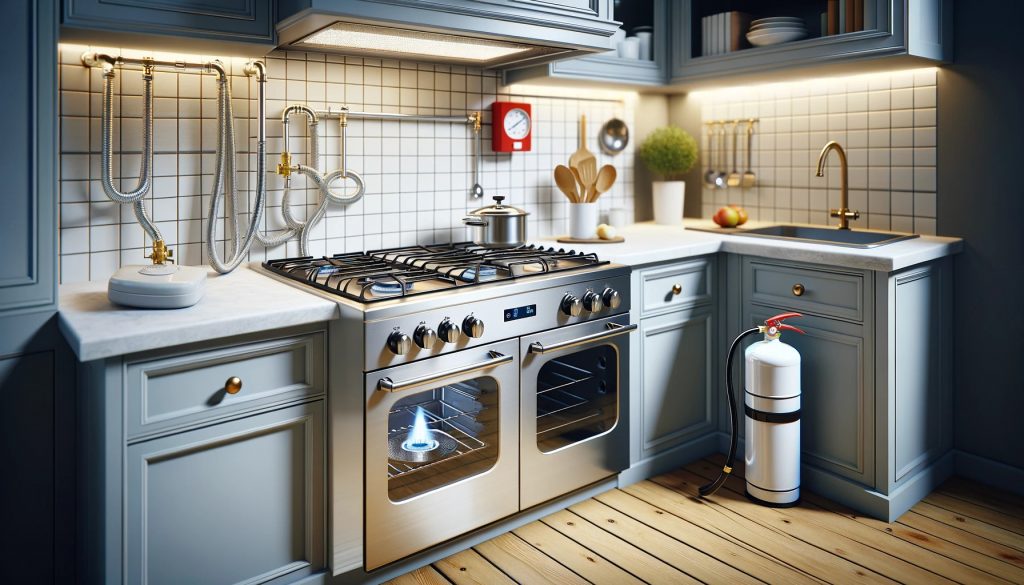
Hello, and welcome to a space where your kitchen’s safety takes centre stage. Consider this: your kitchen is the heart of your home, where meals come to life and hearts warm to the smell of home cooking. But within this comfort zone, we must be vigilant about natural gas safety.
According to Metropolitan Plumbing Gas Experts: “If you detect a strong, unpleasant odour like rotten eggs in your home, it’s a clear sign of a gas leak. Act promptly if you smell gas.”
Today, let’s walk through the vital steps of keeping it a haven, focusing primarily on preventing natural gas leaks and taking good care of our cooking buddies – the appliances.
Understanding the Basics: Why Kitchen Safety is Important
Did you know that gas-burning appliances in your daily cooking allies could pose risks if not cared for properly? That’s right, gas leaks can sneak up on you, and appliances can turn from friends to foes. But fear not! Regular checks and maintenance can counter these risks.
Plus, they keep your household appliances more efficient and long-lasting. We’re talking about efforts in fire that take less time than making your morning coffee but can save lives and resources. Let’s warm up to fire safety, being as essential as your grandmother’s secret recipes.
Preventing Gas Leaks: Recognising the Signs and Taking Appropriate Measures
Now, about those sneaky gas leaks. They come uninvited and can cause more than just a nasty smell. Look out for a hissing sound, a whiff of something foul, or an unusually high gas bill. Spot them? Don’t panic, but don’t ignore them either.
Turn off your gas, open the doors and windows to smell gas inside, and get everyone outside. Then, make that important call to a professional. Preventing them is all about keeping your gas appliances in check and having a routine – think of it as your gas meter and kitchen’s daily workout routine.
Spotting the Signs of a Gas Leak
According to https://www.escosa.sa.gov.au/, there has been a noticeable decrease in the number of gas leaks reported by the public in recent years. Specifically, in 2021-22, there were 6,744 gas leaks reported by the public, which is the lowest number to date. Moreover, it has been highlighted that 99.8% of those gas leaks were repaired within the timeframe specified in Australian Gas Networks’ Leakage Management Plan.
We know the thought of a natural leak, gas leak and leak can be intimidating, but we are here to help you recognise the signs:
- The Smell: Natural gas is odourless, but providers add a “rotten eggs” scent that’s hard to miss. If you detect this odour, you might leak.
- The Sounds: Hissing or whistling sounds near your gas lines cause concern – they could indicate a leak.
- The Visuals: Do you observe the blowing around of dust or dirt? Dead vegetation near gas piping? These are visual signs you shouldn’t ignore.
Remember, spotting the signs early can save lives. Stay alert and vigilant.
Prevention: Your Blueprint for Gas Leak Safety
Armed with the knowledge of recognising a natural gas well, gas leak occurs, let’s learn how to prevent gas leak from occurring:
- Proper Installation: Certified professionals should install gas appliances. Cutting corners isn’t an option here.
- Regular Checks: Scheduling routine inspections for your gas appliances is crucial for maintaining safety.
- Cautious Digging: Planning any yard work? Contact your local utility company before digging – accidentally hitting a gas line is a risk not worth taking.
- Change Old Lines: Old gas lines can be hazardous – consider replacing them if they are past their prime.
Rely on prevention to create a safer environment at home or work.
Remember: if you suspect a gas leak, don’t hesitate. Leave your property, building or area immediately, avoiding electronics, fire or flames. Contact your gas provider or emergency services once you’re safe from the gas well.
We are here to be your approachable, knowledgeable guide. This information empowers you, knowing you’re one step closer to being your best protector. Rest assured, we’re on this journey together!
Maintaining Your Cooking Appliances: Step-by-Step Guide to Care and Maintenance
Your cooking appliances deserve a spa day, too! We are here to guide you through the steps. We’ll talk about regular cleaning, the importance of servicing, and even how to spot when an appliance is calling out for help. Think of it as nurturing – you take care of your appliances, and they take care of you. Just as you’d periodically check in with a doctor, schedule a check-in for your appliances with a certified natural gas appliance expert.
How to Keep Your Kitchen Appliances Spick and Span
We know how daunting kitchen appliance upkeep can seem. But guess what? You’ve got the power to ensure your essential electrical appliances, equipment, appliances and cooking tools stay in tip-top shape. We’re here to guide you step-by-step, conversing in a friendly, understandable language—let’s get started!
Unleashing the potential of your kitchen starts with upkeep. Here’s how to go about it:
Stovetops & Ovens – Your Heat Heroes
- Be Quick to Clean: Spilled something? Clean it up quickly. Stand clear of harsh cleaners to avoid scratches.
- Check Your Grates: Regularly inspect burner grates for wear and tear. Have worn-out ones replaced for even cooking temperature.
- Be the Light: Replace dim or dead oven bulbs to avoid over-baking or under-baking your meals. Ask for help for professionals.
- Good Ol’ Self-cleaning: Use the self-clean feature every few months to keep your oven squeaky clean.
- Don’t Forget the Knobs: Little grime gremlins love hiding here. Mild soap and water work wonder for cleaning your oven knobs. Ask for help for professionals.
Microwaves – The Time-Saver
Reach out to professionals for help in maintaining microwaves.
- Clean from the Inside Out: Wipe the interior with a soft cloth and mild detergent to keep splatters at bay.
- Exterior Care: The outside needs love, too! Use a damp cloth and mild soap.
- Safety First: The door seal is crucial for safe operations. Check and replace if needed. Ask for help from professionals.
- Smooth Operator: Ensure your microwave’s turntable spins evenly by rotating it occasionally.
Refrigerators & Freezers – The Chill Zone
- Bust the Dust: Clean the condenser coils with a vacuum cleaner every six months to optimise efficiency.
- Annual TLC: Defrost and clean the interior once a year to prevent odours and ice build-ups.
- Seal the Deal: Keep the door seals clean with warm soapy water. Replace worn-out seals when necessary.
- Organise for Efficiency: Keep contents orderly. Remember to check on expiration dates and toss out spoiled items periodically
Dishwashers – The Unsung Hero
Always ask for professional service’s help for any dishwasher repairs and maintenance.
- Pre-wash Course: Scrap and rinse dishes before loading to prevent clogs and damage.
- Filter Out the Junk: Rinse the filter with warm water regularly to ensure your dishwasher works like a dream. Ask for help from professionals.
- Run a Cleaning Cycle: Place a cup of white vinegar on the top rack, run a hot-water cycle, and your dishwasher’s interior will be fresh as a daisy!
- Parts Inspection: Keep an eye on spray arms, seals, and hoses for leaks or damage. Replace when needed. Ask for help from professionals.
And that’s it! We are confident this guide has armed you well to maintain your kitchen appliances. As you venture into your cooking escapades, rest assured that your appliances are in prime condition. Now, let’s conquer that kitchen!
Stay Alert, Stay Informed
We’re at the end of our kitchen safety journey, but it’s just the beginning for you. Remember, caring for your home kitchen’s heart is no less important than the care you lavish on your special dishes. Stay alert, stay informed, and above all, stay proactive. Because a safe kitchen is where the real magic happens – and you, my friend, are the magician.
So, are you ready to take these tips and run your kitchen like the boss you are? Let’s turn up the heat on safety, keep things cool with maintenance, and cook up a storm worry-free!




